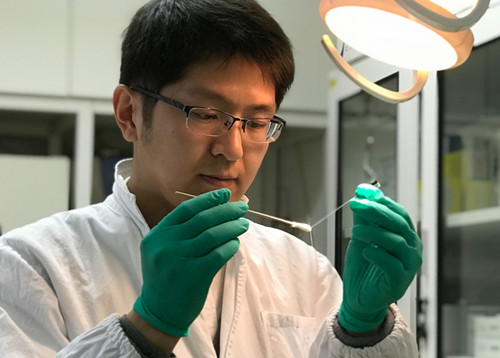Nation set to become new global hub for innovation


A scientist selects neurons to study visual processing of the brain at a laboratory in Beijing. LIU YE/XINHUA
Regaining pride
This is just one of China's achievements at the frontier of science and technology. In his series of books Science and Civilization in China, Joseph Needham, a British science historian, described China as a great country of invention and creation that fell behind in modern times.
Indeed, in the 20th century, few Chinese participated in the world's major scientific and technological advances.
But that situation is changing rapidly, and now Chinese are working in almost every field of science and technology, from internet development to brain studies, from probing space to exploring the deep ocean, from observing the universe to researching micro particles,
In a cave in Wuhan, capital of Central China's Hubei Province, scientists from HUST have measured the gravitational constant for more than 30 years, and recently obtained the most accurate result ever.
Isaac Newton discovered the principles of gravity more than 300 years ago, but the measurement of the gravitational constant had always been inaccurate.
"The precise measurement of the gravitational constant is important for deeper understanding of gravity, and the measuring technology could be applied in navigation and the search for mineral deposits. The study might also help us figure out whether the universe has additional dimensions as surmised by Stephen Hawking, which might enable humans to traverse space and time," Tu Liangcheng, director of HUST's gravitation center, said.







